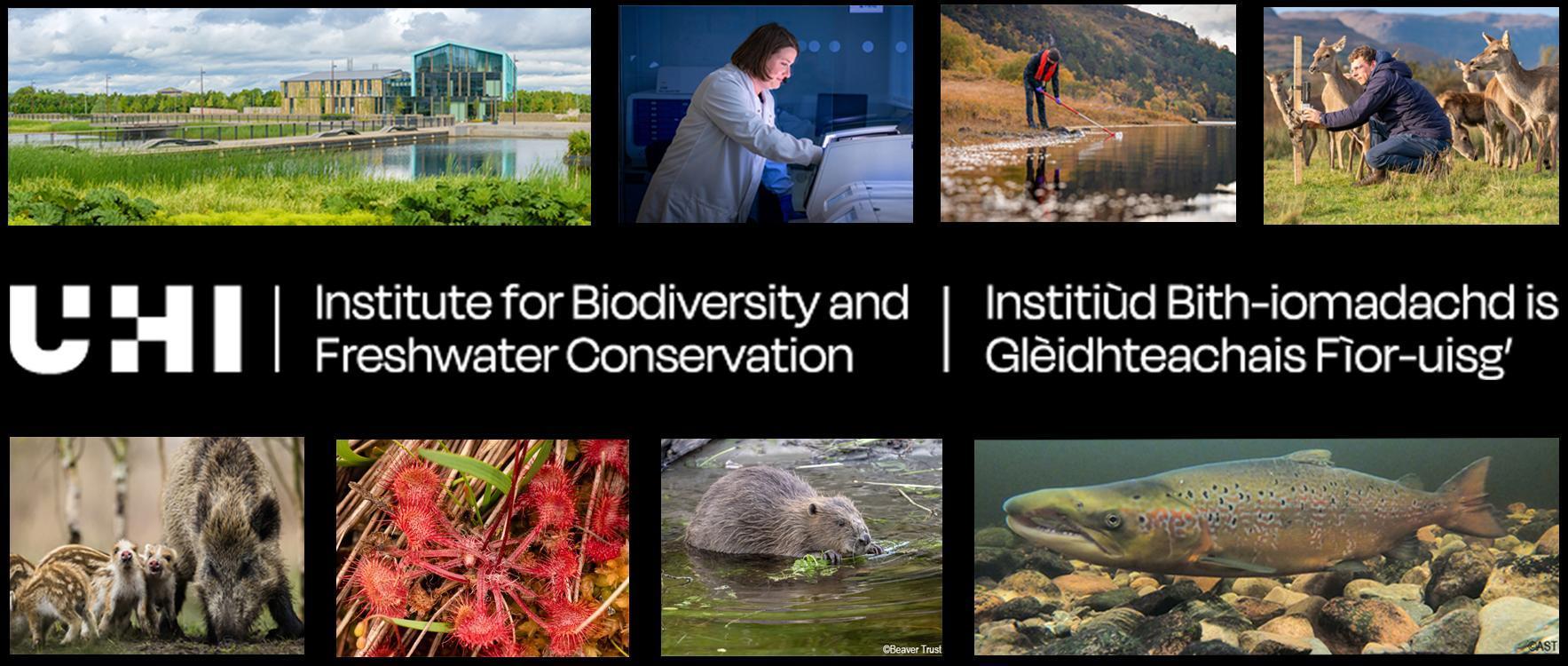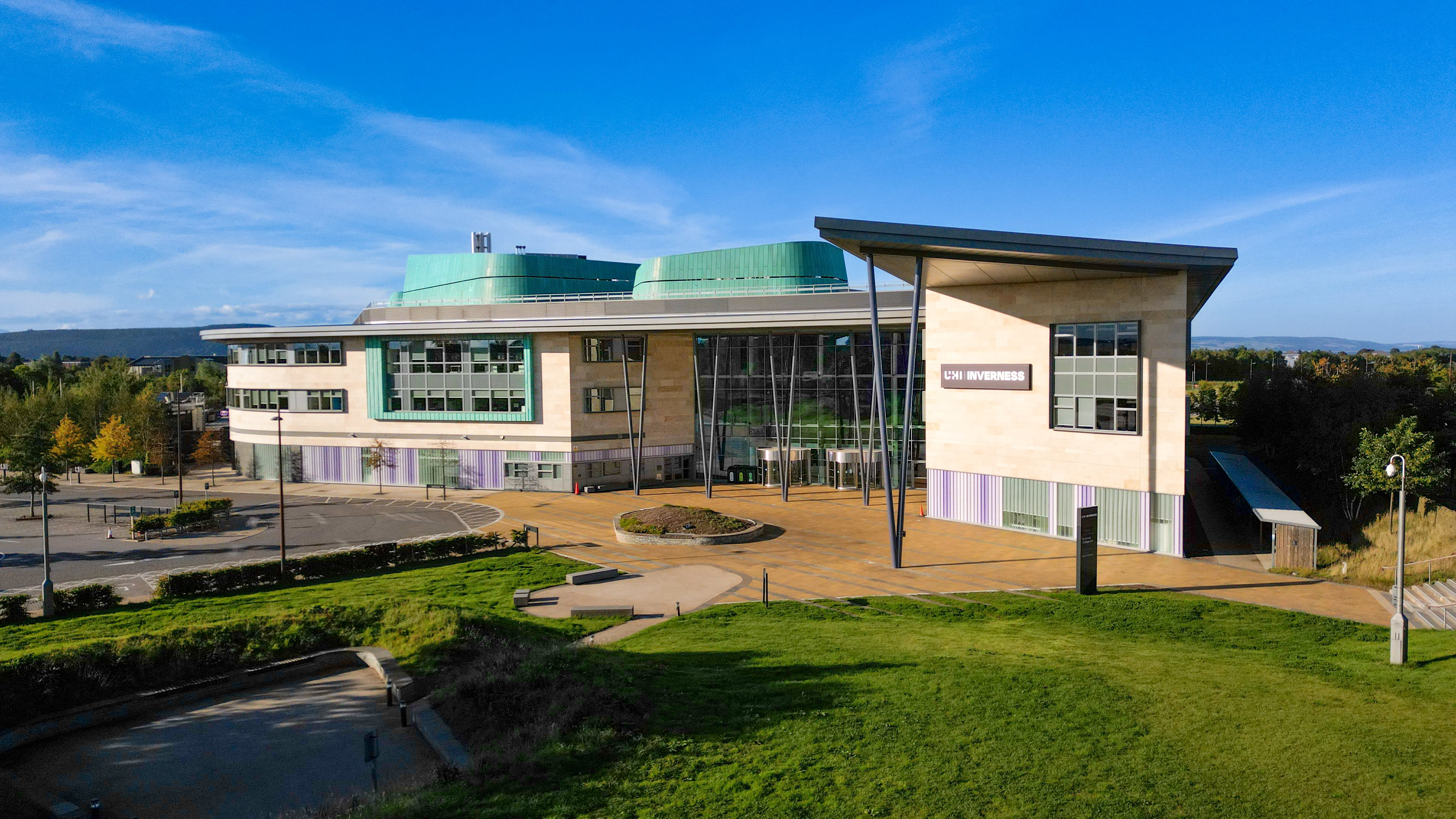
We seek to understand how biodiversity is generated and maintained with the aim of guiding its conservation and management.

Get in touch
Institute for Biodiversity and Freshwater Conservation
UHI Inverness
1 Inverness Campus
Inverness
IV2 5NA


Institute for Biodiversity and Freshwater Conservation
UHI Inverness
1 Inverness Campus
Inverness
IV2 5NA